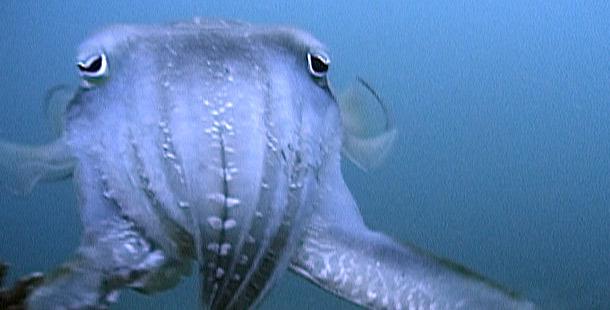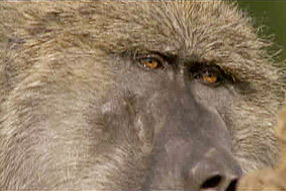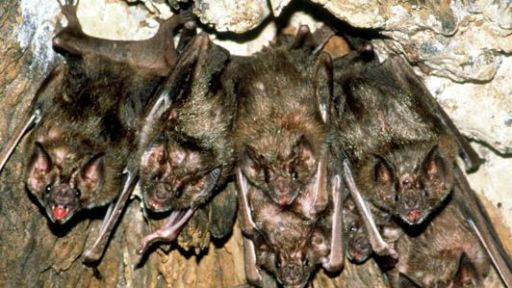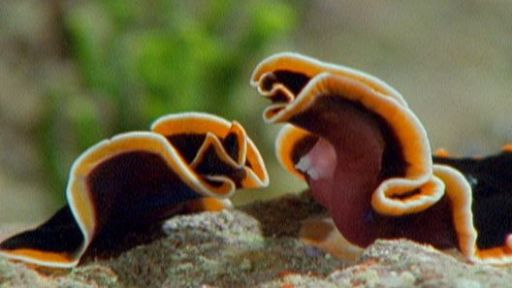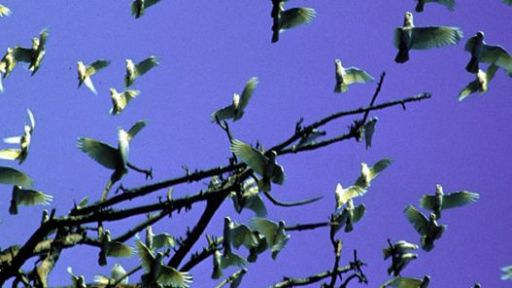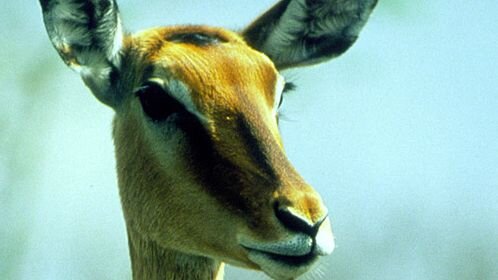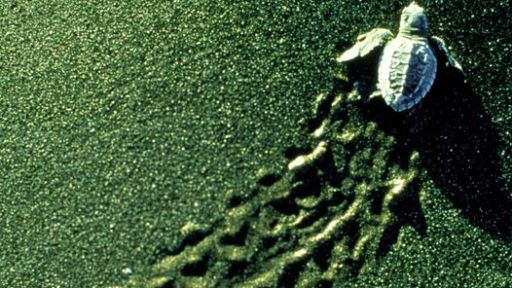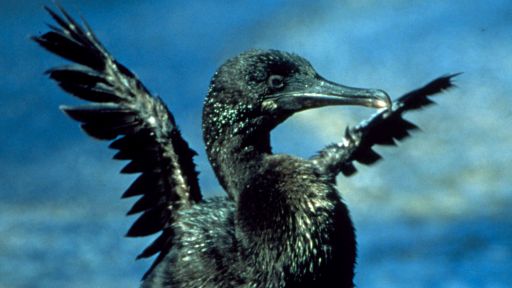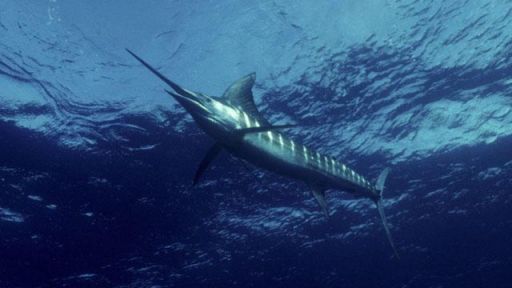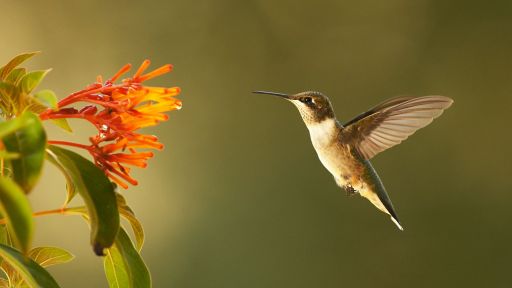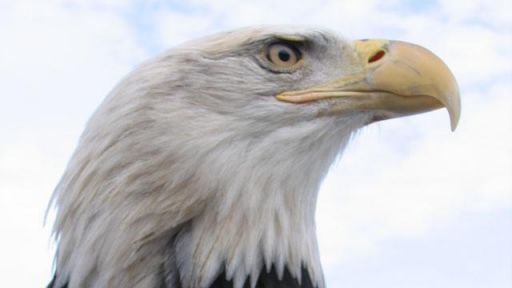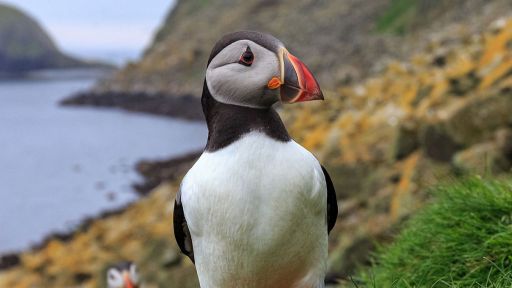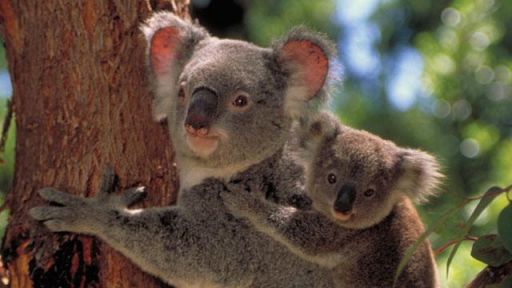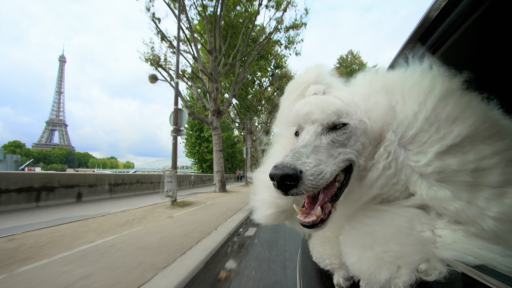A Powerful Organ Hearts, eyes, flippers and wings — evolution has forged many remarkable body structures. But none is more amazing than the brain, that bundle of nerve cells that allows us to sense our surroundings, sort out information, and make decisions. Indeed, the great importance of BRAIN POWER to evolution is the subject of this week’s installment of NATURE’s TRIUMPH OF LIFE series.
Brains are not essential to life. Many organisms, from algae to jellyfish, get along just fine without a central information-processing center. But there is no question that a brain gives many animals an edge. For in the struggle for survival, brawn often gives way to a brain that can outthink a competitor.
Not all brains are equal, however. Some brains consist of just a few hundred or few thousand cells, just enough to sense changes in light or temperature, or to sniff out important smells. Others, like ours, contain billions of cells, enabling everything from language to tool-making.
But simple is often more than enough to assure an animal’s survival. A flatworm’s basic brain, for instance, helps it sniff out earthworms, making the worm a lethal hunter. And while a honeybee’s brain is bigger than a flatworm’s, it is still not all that complex. Nonetheless, the bee is capable of amazing feats of memory, as BRAIN POWER shows.
In their short two-month lives, worker bees must learn to remember where nectar-producing flowers are located in relation to the hive, and exactly what time of day they produce the sweet liquid. The life-or-death memorization is aided by an amazing change in the bee’s brain: as it needs to retain more information, the brain grows, adding tens of thousands of cells on an as-needed basis! Once, scientists believed that such brain-changing abilities were limited to just a few animals. In recent years, however, evidence has shown that many animals’ brains are more flexible than once thought possible. Some birds, for instance, grow new brain tissue during the breeding season — perhaps to sing more complex songs — then lose the cells once mating is over. Other bird brains grow or shrink for migration.
Watch this clip to find out how a bee’s brain can sense changes in time.
You need the free RealPlayer to view the clip.
Researchers have even had to rethink their views of the human brain. Once, they believed that our brains grew only during childhood. It was believed that once we reached adulthood, we only lost — and never gained — brain cells. But surprising new studies show that we continue to add some kinds of brain cells throughout life. And other research shows that although our brains are usually very specialized, with particular parts responsible for certain activities, the human brain can sometimes reorganize itself. People who have lost speech or coordination due to stroke or brain injuries, for instance, can sometimes regain those abilities by “training” a new part of the brain to take over. Such findings have raised new hopes for treating serious brain injuries and birth defects.
Scientists, however, are still puzzling over the question of why we evolved such big, complex brains. Clearly, they are a big help in outsmarting predators and finding food. But our brains may also be a product of social pressures. We expend enormous energy in forging complex social relationships and alliances, whether within a family, among neighbors, or among nations. Making these relationships work requires creative thinking, constant problem-solving, and the ability to understand how another person is thinking — all tasks that call for some serious brain power. Over time, evolution favored those individuals with the best social and survival skills.
For the moment, our brains have made us the most influential species on earth. Our tool-making skills have allowed us to reconstruct the landscape, building cities and plowing fields where forests and grasslands once reigned. We’ve figured out how to make the desert bloom, pumping water from far below the earth to quench our thirsts. And, unintentionally, we may even be altering the planet’s climate by burning massive quantities of coal, oil, and wood that produce carbon dioxide and other global warming gases.
It remains to be seen, however, whether even our brainpower will help us avoid the fate of so many other species in Earth’s history: extinction.

